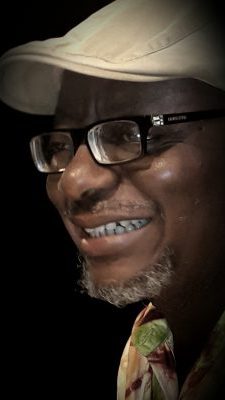Fiction is the lie through which we tell the truth – Albert Camus
(Sunny Side of Midnight, by Tope Adeboboye, Stay Alive International, 2020)

The story is set in Anija (read Nigeria). It has all the trappings of a huge and prosperous country on the continent, however, as it is in the story of Nigeria, Anija is a country with lots of challenges and bundles of contradictions that make sure it does not achieve its pride of place in the comity of nations.
If a country is beset with problems, it goes without saying that majority of its citizens would have their fates tied to these misfortunes; only the ones who are lucky or have the right connections would be able to surmount the trials. The few who are lucky or are able to have the right connections would survive, thrive and make the others look like dullards or those who have never tried enough to overcome the tribulations.
It is against this backdrop that the story of Adaba is finely captured in moving prose by Tope Adeboboye, who is now editor of Saturday Sun newspaper based in Lagos. In this debut novel Sunny Side of Midnight, Adeboboye opens the reader to the world of his lead character, Adaba, a brilliant University graduate who came out top of his class but has the ill-luck of belonging to a wrong class in the society. A society where it does not matter how brilliant you are but what counts is how connected you are to the movers and shakers of the society.
As an orphan who grew up in a remote village and only escaped the poverty of the village through the skin of his teeth to attend a university, he was a studious student who helped his classmates in their studies and had a promising future. He never smoked nor womanized. However, a combination of fate and societal norms makes it difficult for him to break away from the stranglehold of debilitating poverty.
All his efforts to get a job is always frustrated when he is almost getting to the relieving point. In fact, his fate was so battered that any one who seems to want to render any assistance is either afflicted by one misfortune or another thus making his life more sinister and sadder.
After pounding the streets without any success at securing a job, he has to decide to take what was available as a teacher in an unregistered tutorial centre. As it is with such jobs, the pay was low and not enough to reward him for the long years spent in the university sweating it out to be a better member of the society. At dawn one day, the centre was shut down by the authorities for being unregistered and this happened a few days to when he was expecting to be paid at the end of the month!
Adaba rolls form one misfortune to the other and the reader at a point would perhaps ask himself when this distress would end or whether Adaba was created solely to be a chess on the board of life to be played here and there by some unseen forces. The story then brings a new twist with the revelation of the circumstance that led to his being orphaned and the belligerence of his grandmother who had all along thought he would be satisfied with living his life as a village boy and not move to the city. He went against the grains and was this responsible for his cruel fate?
He later met someone who tries to help him solve this riddle and in travelling to his ancestral home and meeting Adaba’s grandmother he also got to know himself better. He had to renounce his devotion to serve his people and return to his former life in America. The tale is intriguing and very interesting. There is no doubt that Adeboboye has through this debut novel, he had a few years back published a collection of poems, announced his arrival on the scene as a novelist. The graduate of Drama from the famous University of Ibadan Drama Department has shown that he is an adept lover of Greek Tragedy. Adaba’s fate throughout the 368 pages are grim and tragic. Perhaps the only sunny side of it is the hope that he would survive the accident and live a better life after such a gruesome encounter with life. A man who lived a straight life: no women, no drinks and not sybaritic, why is life so cruel to him?
Adeboboye has with this introduced himself as a writer to watch. This is not to say he is new to writing; he is an award-winning journalist who has been garlanded both at home and abroad. But fiction is not journalism neither is journalism fiction. He has like most journalists who traversed both genre of writing done a good job. There are however a few glitches that have to be corrected in future reprints. For instance, is it Mr. Petrus Chamba (or Chamber? p35, 36 and 37), “what have been up to” instead of “what have you been up to?” (p188), “When chief Julius was done, they all repaired to the Palace…(p293)”, it should be returned not repaired, and on page 307 “but…I was just wandering”, should read wondering.
These few malapropisms do not however inhibit the enjoyment of flow of the story.


